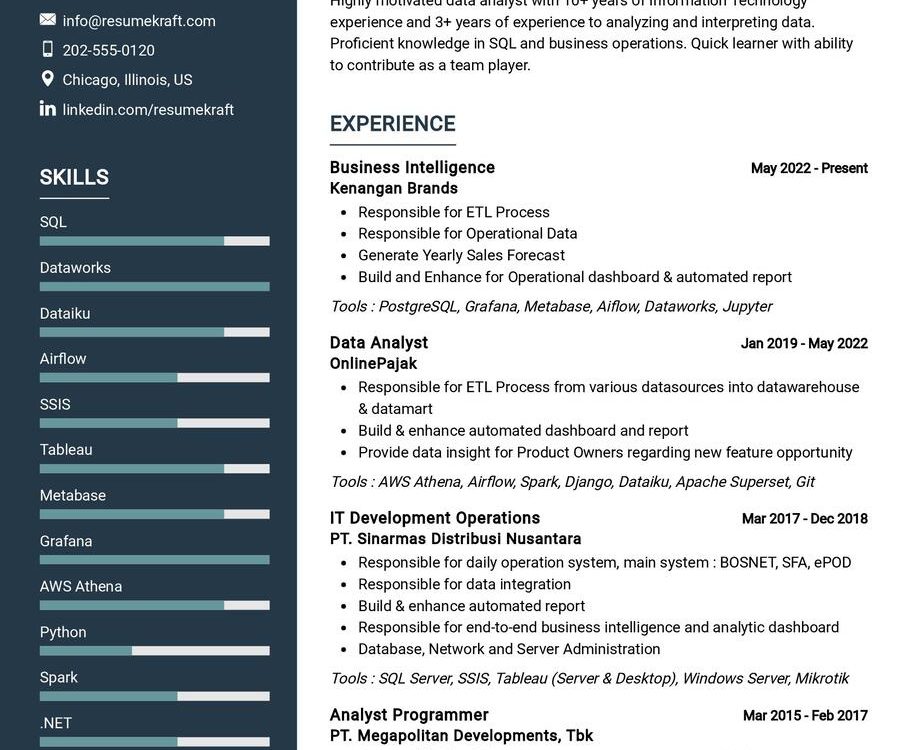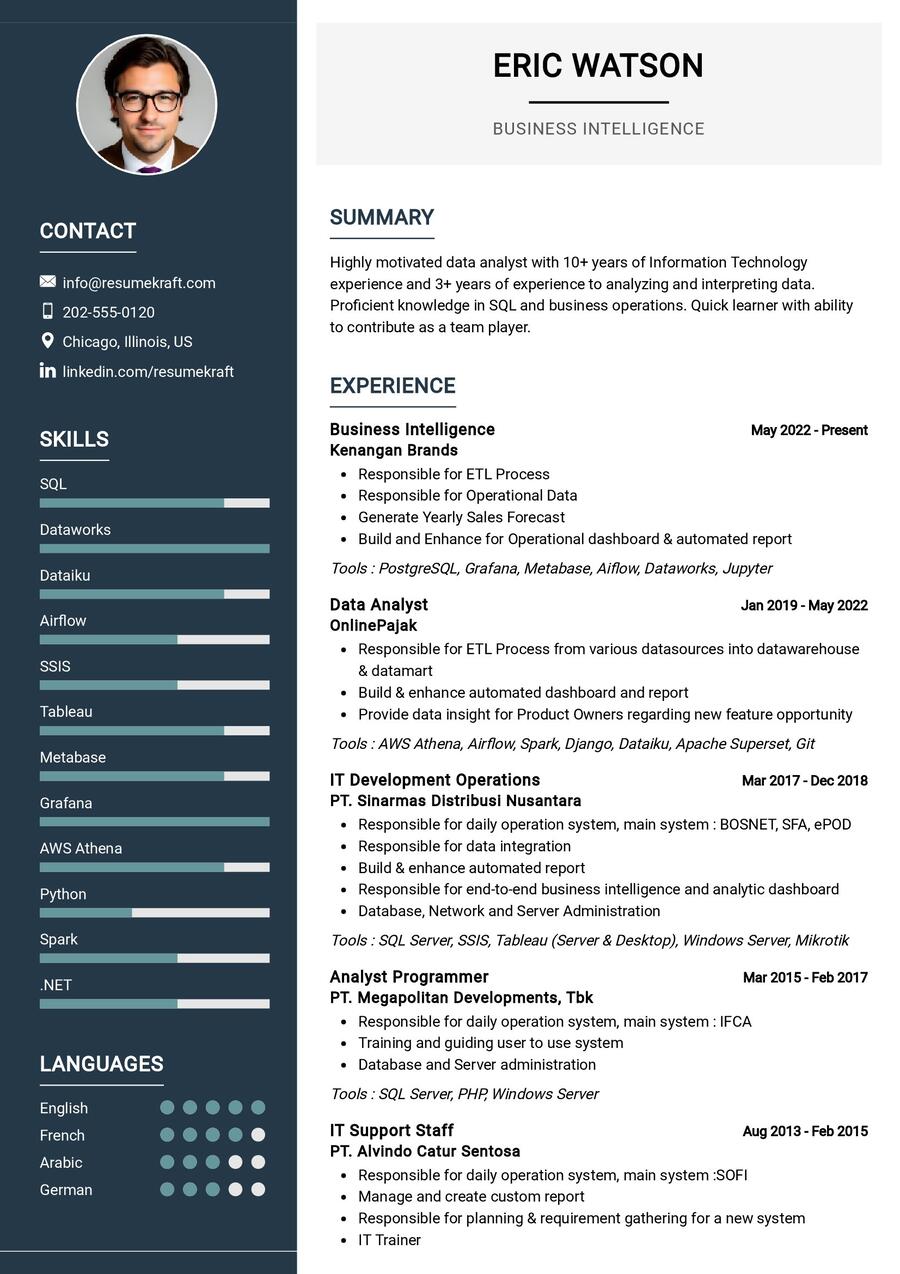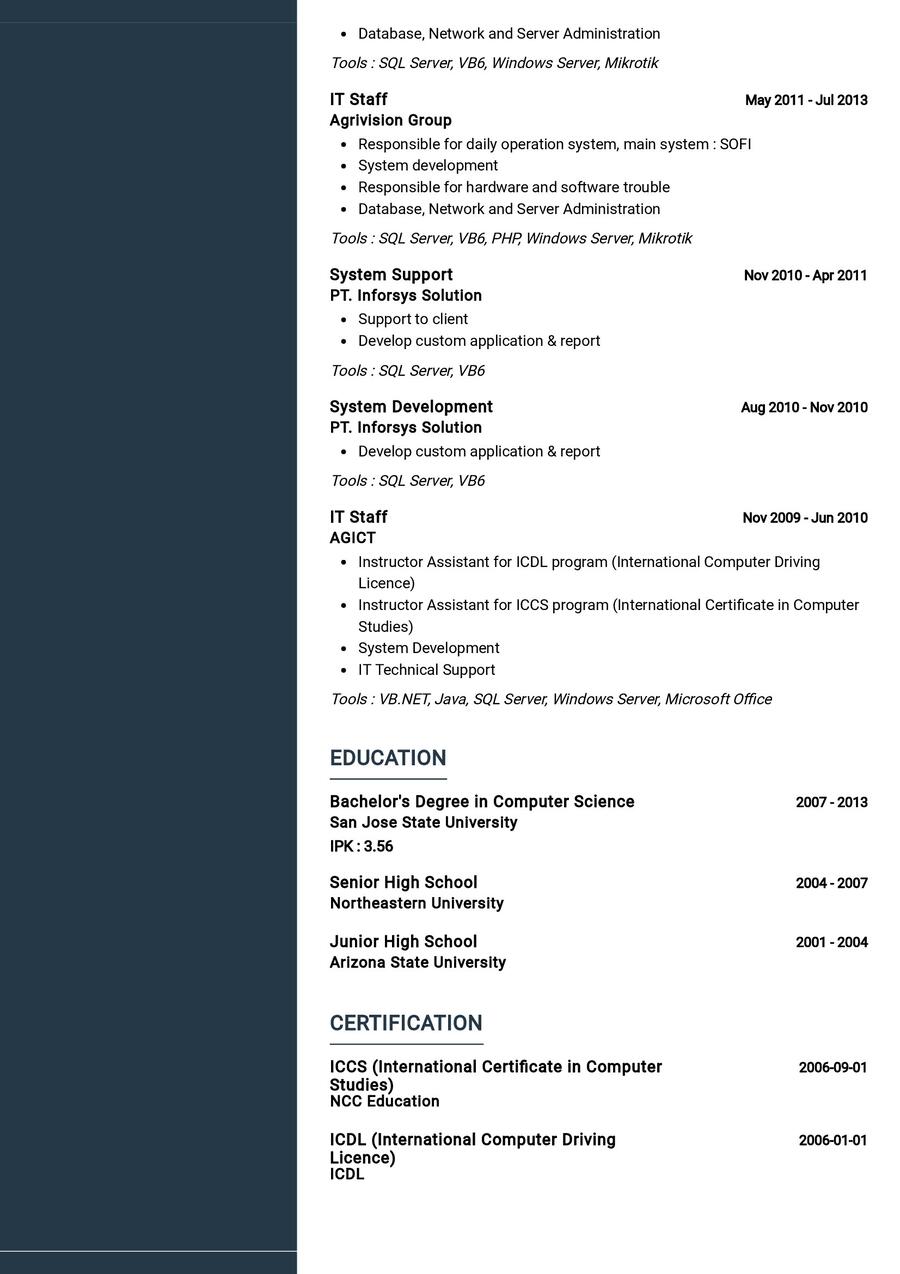Unlocking Success: The Role of a Business Intelligence Leader
In today’s dynamic business landscape, the role of a Business Intelligence (BI) Leader has emerged as a linchpin for organizations striving to make data-driven decisions. This position demands a fusion of analytical prowess and strategic thinking, steering the BI team towards unlocking valuable insights. Let’s delve deeper into the multifaceted role of a Business Intelligence Leader, exploring the skills, qualifications, and responsibilities that define success in this critical position.
Business Intelligence Leader Job Requirements
Embarking on the journey to become a Business Intelligence Leader requires meeting several key requirements, a path marked by continuous learning and hands-on experience. Let’s explore the prerequisites for embracing the role of a Business Intelligence Leader:
- A Bachelor’s or Master’s degree in Business, Analytics, or a related field, establishing a strong foundation in the analytical domain.
- Expertise in BI tools such as Tableau, Power BI, or Qlik, showcasing proficiency in translating raw data into actionable insights.
- Proven experience in data analysis, demonstrating a track record of deriving meaningful conclusions from complex datasets.
- Leadership and team management skills, honed through experiences and possibly through courses and certifications.
- Advanced knowledge of SQL and database management, essential for extracting and manipulating data efficiently.
- Effective communication skills, with the ability to convey complex findings to both technical and non-technical stakeholders.
- Adaptability and problem-solving abilities, crucial in navigating the evolving landscape of business intelligence.
Attaining additional certifications in BI tools can enhance your profile, making you a sought-after candidate in the competitive job market.
Responsibilities of a Business Intelligence Leader
The role of a Business Intelligence Leader is a dynamic tapestry of responsibilities, woven with threads of analytical acumen, leadership skills, and strategic vision. Let’s unravel the core responsibilities that define this role, each contributing to the overarching goal of leveraging data for organizational success:
- Overseeing the development and implementation of BI strategies, aligning them with organizational goals.
- Leading the design and creation of dashboards and reports, providing actionable insights to support decision-making.
- Collaborating with cross-functional teams to identify business requirements and ensure BI solutions meet organizational needs.
- Guiding the BI team in data modeling and visualization best practices, ensuring the accuracy and relevance of insights.
- Ensuring data governance and compliance with industry regulations, safeguarding the integrity of organizational data.
- Staying abreast of emerging trends in BI and analytics, driving the team towards adopting innovative solutions.
Each responsibility comes with its own set of challenges and learning, shaping you into a BI leader par excellence.
Business Intelligence Leader CV Writing Tips
Crafting a compelling CV is essential to stand out in the competitive field of Business Intelligence Leadership. Your CV is a reflection of your journey, your growth, and your aspirations. Here are some tips to help you effectively communicate your story through your CV:
- Highlight your leadership roles, showcasing instances where you have led teams to successful BI implementations.
- Detail initiatives or programs you have spearheaded, narrating the impact they had on the organization’s data-driven decision-making.
- Include metrics to quantify your achievements, painting a vivid picture of your successes through numbers.
- List relevant certifications, showcasing your commitment to continuous learning in the dynamic field of business intelligence.
- Personalize your CV for the specific role, weaving a narrative that resonates with the job description.
Each tip is a brushstroke, helping you paint a portrait that is both compelling and authentic.
Business Intelligence Leader CV Summary Examples
Your CV summary is the opening act of your career story, setting the stage for what is to follow. It should be a powerful snapshot of your journey, encapsulating your experiences, skills, and the value you bring to the table. Here are some examples to inspire you:
- “Business Intelligence Leader with over 8 years of experience, adept at transforming data into actionable insights that drive strategic decisions.”
- “Results-oriented BI Leader with a proven track record in developing and implementing innovative BI solutions, enhancing organizational efficiency.”
- “Experienced Business Intelligence Leader specializing in data visualization and analytics, driving business success through informed decision-making.”
Each summary is a window to your career, offering a glimpse of your journey, your strengths, and your vision as a Business Intelligence Leader.
Create a Strong Experience Section for Your Business Intelligence Leader CV
Your experience section is the heart of your CV, pulsating with the rich experiences you have gathered over the years. It is a space where you narrate your career story, highlighting the milestones and the learning. Here are some examples to guide you:
- “Led a team of BI analysts in developing a predictive analytics model, resulting in a 15% improvement in sales forecasting accuracy.”
- “Initiated and implemented a self-service BI platform, empowering teams to generate real-time reports and reducing dependence on IT.”
- “Collaborated with the marketing department to analyze customer behavior, leading to targeted campaigns and a 20% increase in customer engagement.”
Each experience is a chapter in your career book, narrating tales of challenges met, solutions found, and successes achieved.
Sample Education Section for Your Business Intelligence Leader CV
Your educational journey is the foundation upon which your career stands. It is a testimony to your knowledge, your expertise, and your commitment to learning. Here’s how you can list your educational milestones:
- Master of Business Analytics, XYZ University, a comprehensive program laying the groundwork for advanced analytics, 2016.
- Bachelor of Science in Business Administration, ABC University, the cornerstone of your business acumen, 2014.
- Certified Business Intelligence Professional (CBIP), a recognition of your expertise in the field, 2018.
Each educational qualification is a stepping stone, leading you to the pinnacle of success in your career.
Business Intelligence Leader Skills for Your CV
Your skill set is your toolbox, equipped with a diverse range of tools that you have honed over the years. It is a showcase of your abilities, both innate and acquired. Let’s list down the essential skills that a Business Intelligence Leader should possess:
Soft Skills:
- Leadership and team management, the ability to guide your team towards successful BI implementations.
- Communication and interpersonal skills, the art of conveying your analytical findings effectively to diverse stakeholders.
- Problem-solving abilities, the knack of finding solutions in complex datasets and business challenges.
- Attention to detail, the meticulous approach to ensuring the accuracy and relevance of BI insights.
- Adaptability and resilience, the strength to navigate the evolving landscape of business intelligence.
Hard Skills:
- Expertise in BI tools such as Tableau, Power BI, or Qlik, essential for data visualization and analysis.
- Advanced knowledge of SQL and database management, crucial for extracting and manipulating data efficiently.
- Data modeling and visualization best practices, ensuring the creation of impactful and meaningful reports.
- Understanding of data governance and compliance with industry regulations, safeguarding organizational data.
- Continuous learning in BI tools and emerging trends, driving the team towards adopting innovative solutions.
Each skill is a tool, aiding you in providing actionable insights and leading your BI team effectively.
Common Mistakes to Avoid When Writing a Business Intelligence Leader CV
As you craft your CV, it is essential to steer clear of common pitfalls that can hinder your journey to landing your dream BI leadership role. Here we list down the mistakes often seen in CVs and how to avoid them:
- Using a generic template, a strategy that fails to showcase your unique fit for the BI leadership role.
- Listing responsibilities without highlighting your achievements, resulting in a CV that lacks impact.
- Underestimating the importance of a cover letter, a missed opportunity to convey your passion for business intelligence.
- Overloading your CV with technical jargon, potentially alienating non-technical hiring managers.
- Failing to proofread, a mistake that can diminish your professional image.
Each mistake is a pitfall, avoid them to craft a CV that is both authentic and compelling.
Key Takeaways for Your Business Intelligence Leader CV
As we reach the end of this comprehensive guide, let’s recap the key points to keep in mind while crafting your Business Intelligence Leader CV:
- Emphasize your leadership journey, showcasing the milestones achieved and the teams led in the realm of business intelligence.
- Highlight your technical proficiency, showcasing your expertise in BI tools and data analysis.
- Detail the strategic initiatives you have spearheaded, painting a picture of your visionary approach to business intelligence.
- Include a section on continuous learning, showcasing the certifications and courses undertaken to stay abreast of BI trends.
Finally, feel free to utilize resources like AI CV Builder, CV Design, CV Samples, CV Examples, CV Skills, CV Help, CV Synonyms, and Job Responsibilities to create a standout application and prepare for the Business Intelligence Leader job interview.



